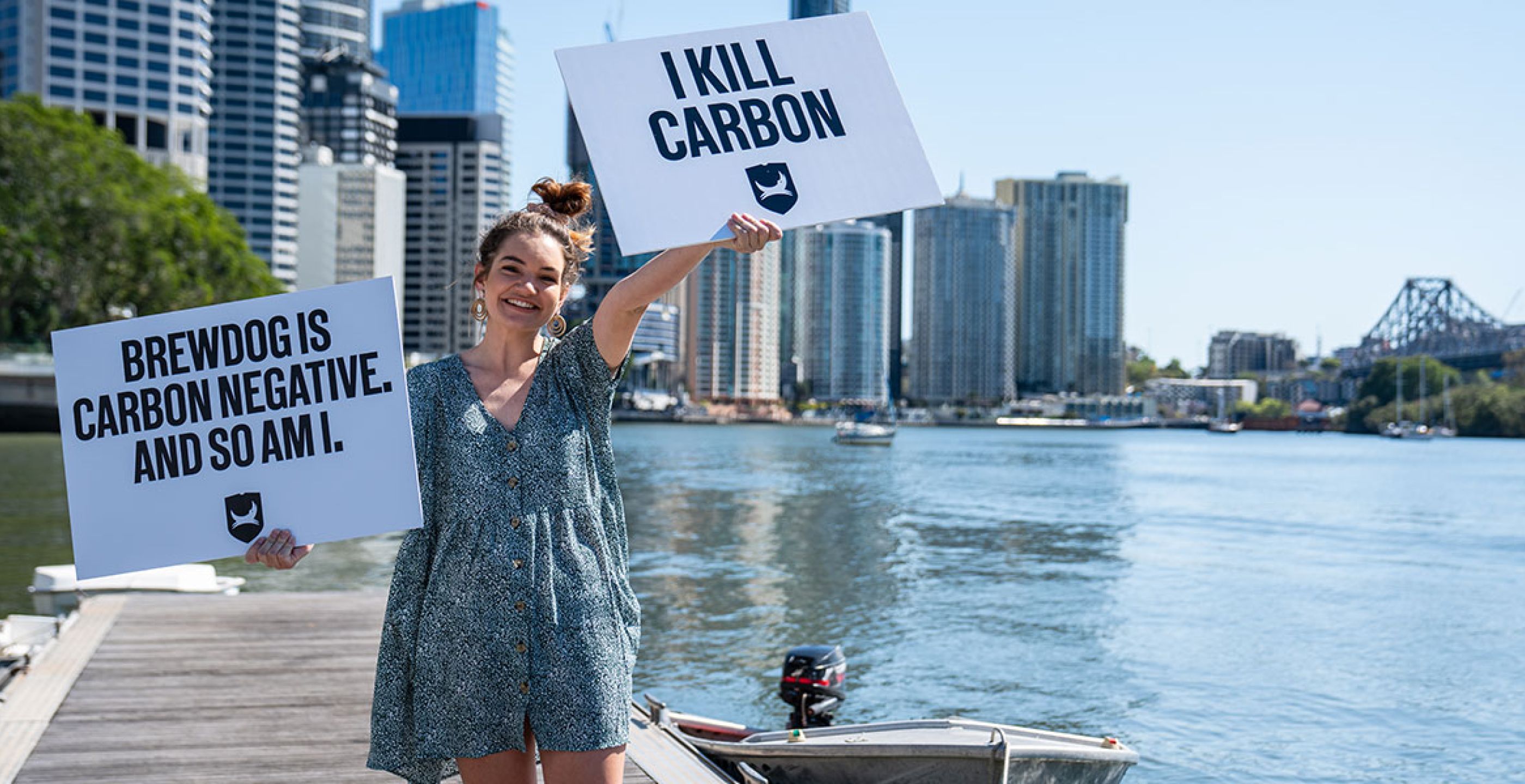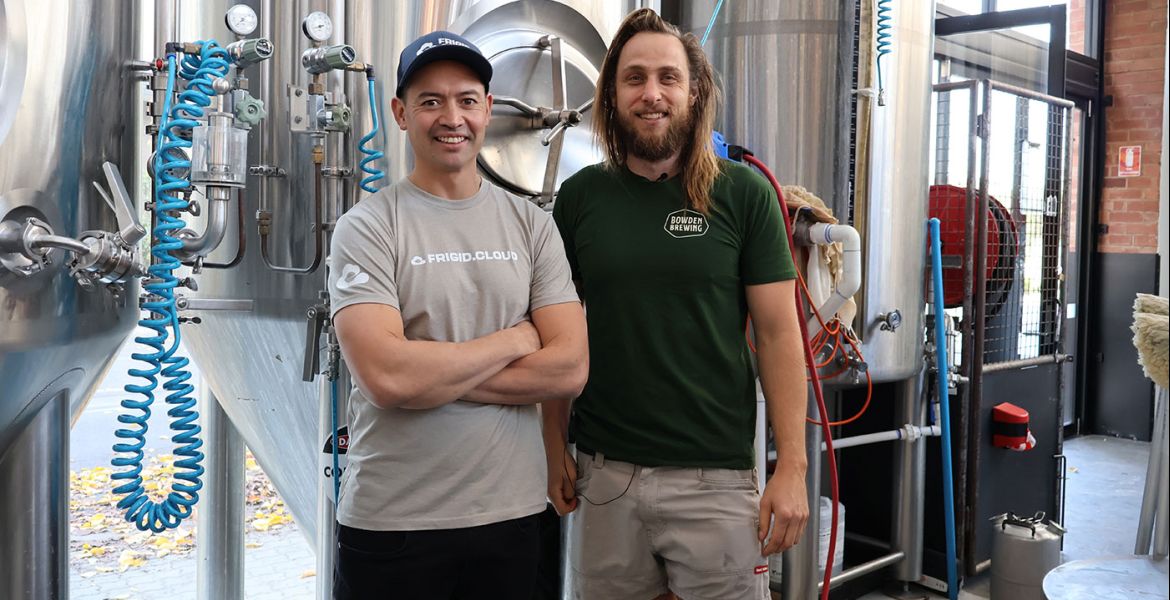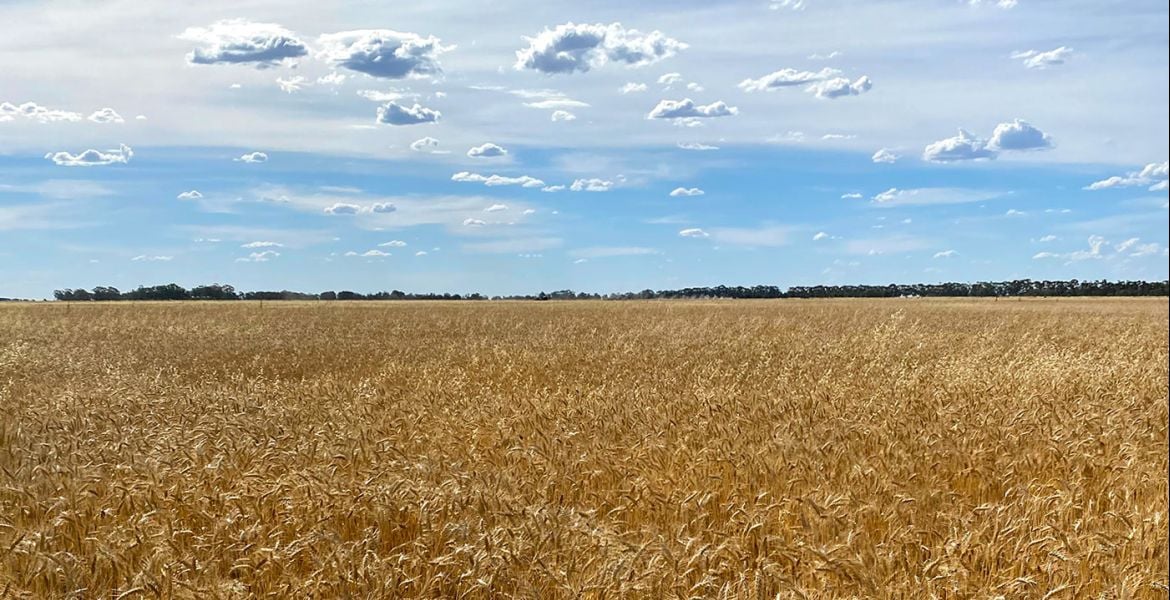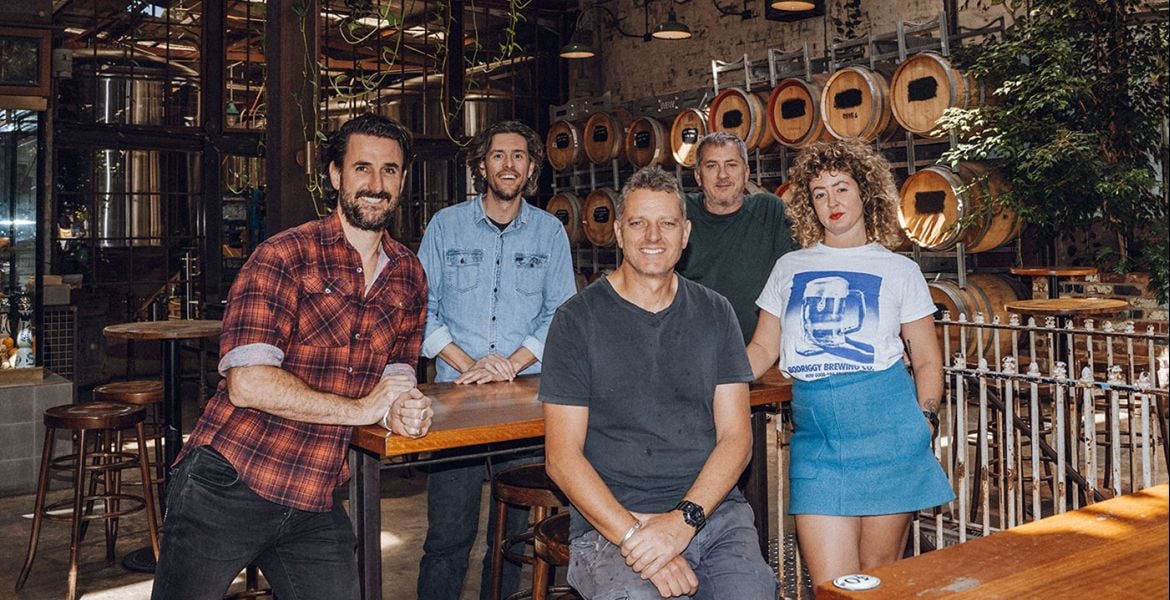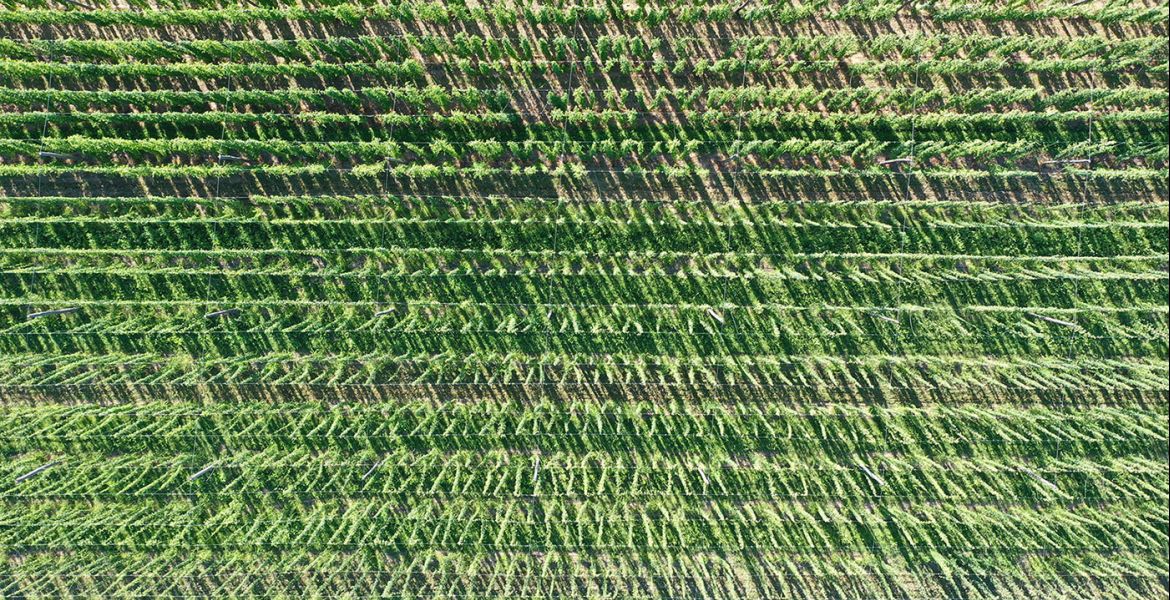Whether it’s brewing itself, shipping beer across the world, or keeping burgers flying out of a commercial kitchen, the beer industry is responsible for producing a lot of carbon dioxide, with breweries both large and small playing their part.
The Crafty Pint has often looked at the way many businesses in Australia have looked to curb their emissions for our Going Green series. Recently, however, a rather impressive global standard was set.
In August, BrewDog announced the entire company wouldn't merely be carbon neutral but would instead become carbon negative. Effectively, this means that, each year, BrewDog will pay to take twice as much carbon out of the atmosphere as it emits.
“The scientific consensus is clear: we are sleepwalking off the edge of a cliff,” BrewDog co-founder James Watt said of the announcement.
“Unless the world confronts the urgent carbon problem, science tells us that the results will be catastrophic.”
The program was developed with British researcher and carbon footprint expert Mike Berners-Lee and the plan includes planting a million trees in the brewery's own 2,000 acre forest in the Scottish Highlands.
At DogTap Brisbane, which opened nearly a year ago in the eastern suburb of Murrarie, the local BrewDog team are making their own strides. To offset emissions locally, they've partnered with the Yarra Yarra Biodiversity Corridor – a project north of Perth aiming to reforest approximately 10,000 square kilometres of land previously cleared to grow wheat.
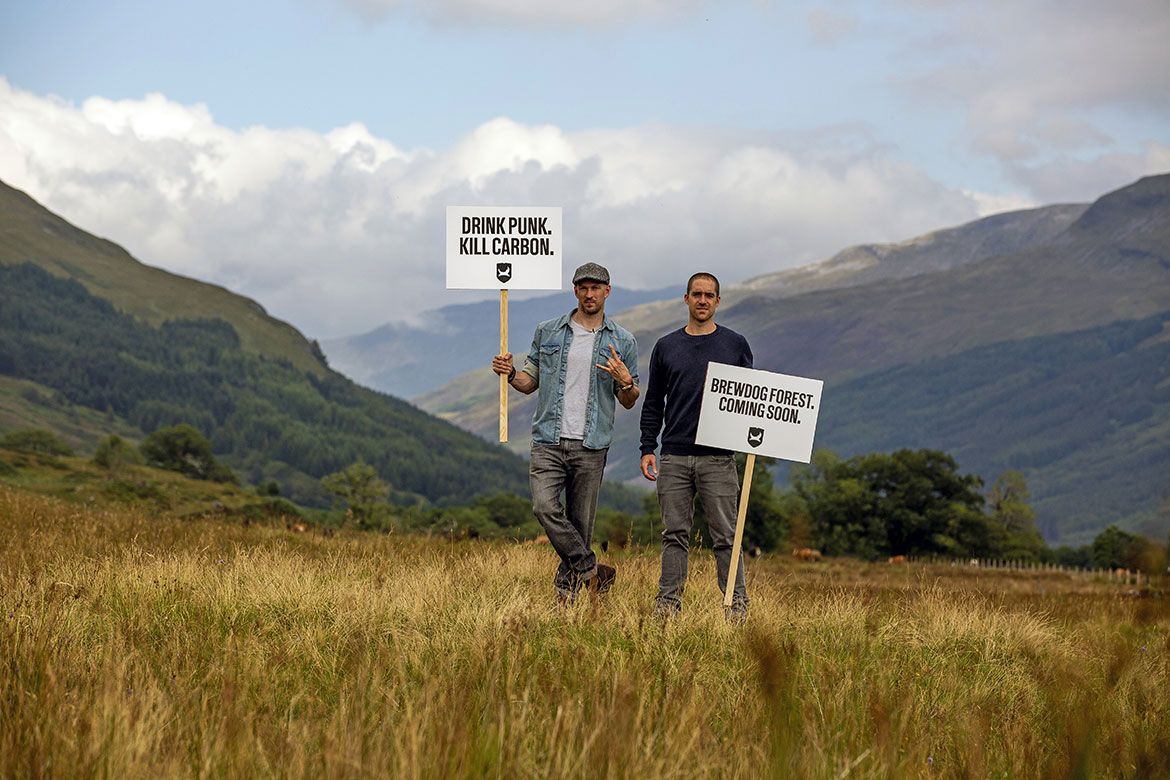
Australia’s head of operations, Calvin McDonald, says that, while BrewDog’s outpost on these shores isn’t big enough to start their own forest, they wanted to work with a local group that was both highly regarded and accredited.
“We’re not quite in a position to do that here so, for me, this is the next best thing and stays as local as we can get it,” he says.
“When anything comes into vogue a little bit, you’ve got a lot of groups that aren’t quite properly accredited and it’s difficult to check where your money goes.”
This month, the brewery went further and announced all their staff would be carbon negative too. Calvin says finding out how much CO2 he and the rest of the team were responsible for involved an impressively detailed process; it's one that includes looking into your power bills, flights, what you eat, right down to how much of your food is imported and what's locally produced.
“It’s everyone’s carbon footprint basically, but we call it Pawprint because we’re BrewDog,” he says.
“I’m unfortunately racking up a relatively high carbon footprint because I live on my own in a two-bedroom house. I managed to shave a bit off because I don’t eat much meat so that works in my favour.”
Seeing his own emissions was pretty eye-opening and he thinks undertaking a personal review makes you rethink your own habits. As a Scotsman living in Brisbane with two sisters in Perth, the impact of being a frequent flyer was particularly shocking for Calvin.
“Obviously, you’re aware of it, but when you see it it’s harder to ignore and avoid,” he says. “I might end up getting the train to Perth next time.”
For now, the company is paying to offset the amount of carbon brewing it creates, but they're aiming for that to be a temporary solution.
“For me, that’s just the tip of the iceberg, we’d love to get to the point where we don’t have to offset and we’d love to get to the point where, at the brewery, we’re neutral from the start.”
Although using gas for their boilers is difficult to avoid, on the electrical front they have big plans, including drawing a significant amount of power from their roof and looking into battery storage so they can send some of that energy elsewhere.
“It’s not in our interest to just spend tonnes and tonnes of money on carbon credits,"Calvin says. "We’d like to be able to do everything ourselves, so it puts us on the right path.”
As for what else has been keeping BrewDog’s top man in Australia busy since he arrived here a little over a year ago, the short answer is: a lot.
In August, the brewery launched its Brisbane-brewed core lineup featuring Punk IPA, Elvis Juice, Hazy Jane and a 3.5 percent ABV pale ale created for the Australia market. A pasteuriser is on the way so that they can start brewing their alcohol-free range locally, with Calvin expecting Punk AF to follow closely behind Punk IPA in terms of volume sold in Australia.
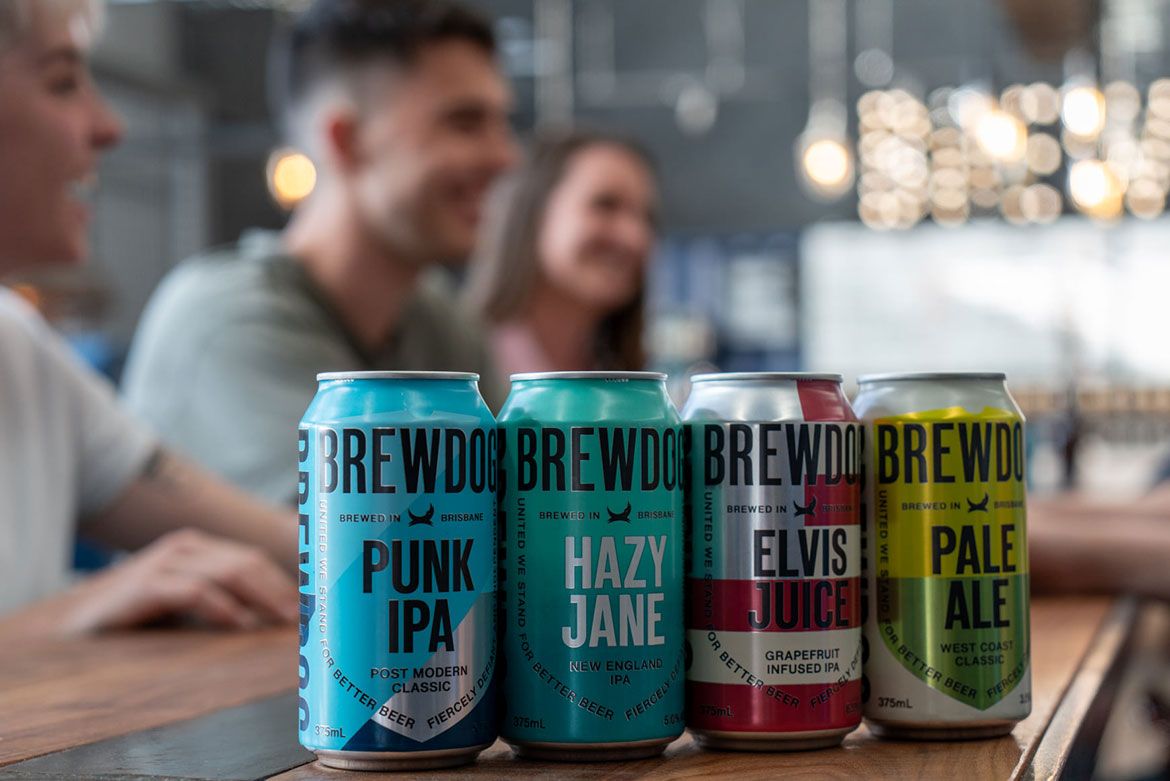
“We were absolutely blown away from the response, hitting about three times the figures we thought we were going to hit,” Calvin says of the DogTap itself, saying locals have embraced the site despite its relative distance from the heart of Brisbane.
“As far as making the best of a global pandemic, opening a taproom in Queensland seems to be pretty much it. We’re still operating at around about 60 to 70 percent of what we were doing pre-COVID but that’s higher than we’re we thought we might be in the first place.”
The venue's success means a BrewDog bar in the heart of Brisbane is still a very real possibility, but their next venue is just as likely to be in Melbourne or Sydney.
“When you look at our online shop's sales, about 40 percent of what we sell goes to New South Wales and about 40 percent goes to Victoria,” Calvin says. “So, straight away, Sydney and Melbourne go to the top of the list but, that being said, we’d love to open another one in Brisbane as well.”
Closed borders and the founders' grand ambitions make turning those ideas into a reality a challenge. But, says Calvin: “This is the blessing and the curse of BrewDog: because nothing is ever ruled out, everything is ruled in so you don’t know where to start.”
For other entries in our Going Green series, head here. If you run or know of a project suitable for inclusion in the series, get in touch.



